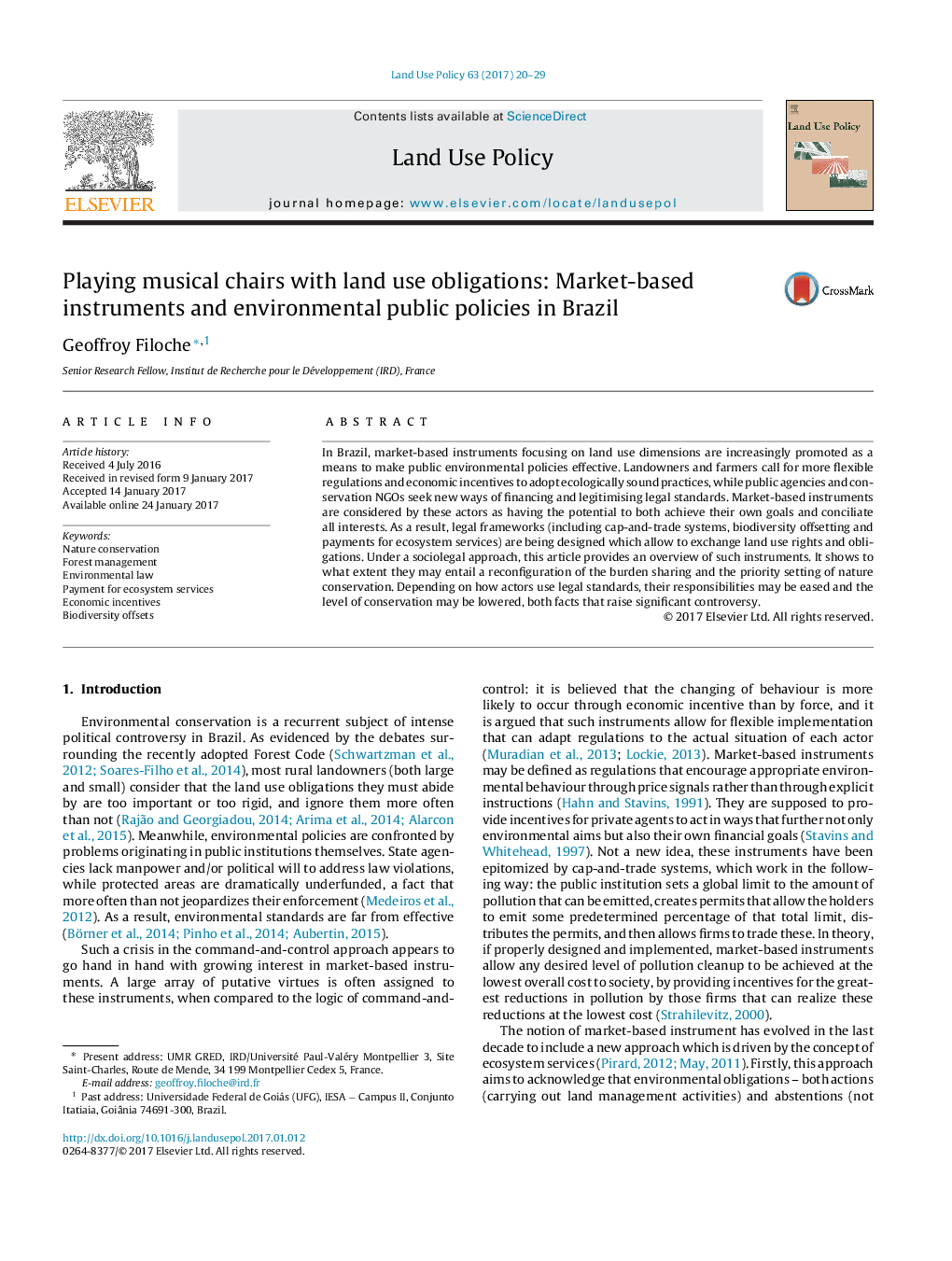| Article ID | Journal | Published Year | Pages | File Type |
|---|---|---|---|---|
| 6460968 | Land Use Policy | 2017 | 10 Pages |
In Brazil, market-based instruments focusing on land use dimensions are increasingly promoted as a means to make public environmental policies effective. Landowners and farmers call for more flexible regulations and economic incentives to adopt ecologically sound practices, while public agencies and conservation NGOs seek new ways of financing and legitimising legal standards. Market-based instruments are considered by these actors as having the potential to both achieve their own goals and conciliate all interests. As a result, legal frameworks (including cap-and-trade systems, biodiversity offsetting and payments for ecosystem services) are being designed which allow to exchange land use rights and obligations. Under a sociolegal approach, this article provides an overview of such instruments. It shows to what extent they may entail a reconfiguration of the burden sharing and the priority setting of nature conservation. Depending on how actors use legal standards, their responsibilities may be eased and the level of conservation may be lowered, both facts that raise significant controversy.
